Search Results
Showing results 1 to 20 of 136
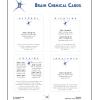
Crossing the Synaptic Gap
Source Institutions
In this neuroscience activity, learners conduct a simulation to demonstrate how multiple incoming signals influence the action of neurons.

The Geophysical Light/Dark Cycle
Source Institutions
This is an activity (located on page 131 of the PDF) related to sleep and circadian rhythms as well as space travel.

Right Foot/Left Foot
Source Institutions
In this activity (2nd on the page), learners conduct a series of tests to find out which foot is more dominant. In other words, are they right-footed or left-footed?

Chemical Footprint—Family Activity
Source Institutions
In this multi-part activity learners examine non-point water pollution.
What Do Birds Do?
Source Institutions
This activity (located on page 3 of the PDF under GPS: Cave Swallows Activity) is a full inquiry investigation into bird behaviors.

Setting the Scene
Source Institutions
In this activity (on page 2), pairs of learners create an imaginary crime scene. One person leaves the room while the other person moves a few things around.

I Like to Move-It
Source Institutions
This is an activity which will allow learners to gain an understanding of lemur behavior through observation and role play.
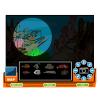
Underwater ROV
Source Institutions
In this online Flash game, learners will explore a coral reef using an underwater remotely operated vehicle (ROV).

Bronx Cheer Bulb
Source Institutions
In this activity, learners observe what happens when they give a light source like a neon glow lamp a "Bronx Cheer." The lights appear to wiggle back and forth and flicker when learners blow air throu
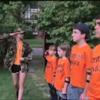
Exercise and Memory
Source Institutions
This activity (page 1 of the PDF under SciGirls Activity: Exercise and Memory) is a full inquiry investigation into the effects of exercise on short term memory.
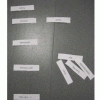
Life Size: Line 'em up!
Source Institutions
In this activity on page 1 of the PDF, learners compare the relative sizes of biological objects (like DNA and bacteria) that can't be seen by the naked eye.
The Sharp Eyes of a Naturalist
Source Institutions
In this creative activity, learners will practice looking carefully to observe details and to become familiar with dioramas as a method for displaying naturalistic scenes.

Open Heart: Disease and Diagnosis
Source Institutions
In this online activity about heart disease, learners will pick one of three patients (based on actual patient histories) and help a cardiologist diagnose and prescribe treatments for him or her.

Built in Stopwatch
Source Institutions
In this activity (3rd on the page), learners investigate circadian rhythms by examining how well people do with estimating time.

Olympic Track Meet
Source Institutions
In this activity, learners discover how exercise helps keep the body healthy. Learners increase their heart rates by running and understand how running fast versus walking affects their pulse rates.
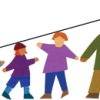
Line Up: Using Math To Stand In Line
Source Institutions
Put math of measurement into lining up — and make waiting in line fun. Choose a size characteristic that learners can physically compare, such as foot length or hair length.
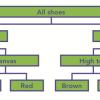
Shoe Dichotomous Key
Source Institutions
In this activity (on page 2 of the PDF under GPS: Cactus Activity), learners will develop their own version of a tool used by biologists, a dichotomous key, by collecting all their left shoes.

Building Bingo
Source Institutions
In this on site "field trip" activity (located on pages 6-9 of PDF), learners get hands-on experience identifying building materials by playing "Building Bingo".

For the Birds: Environmental Effects on Population
Source Institutions
In this activity, learners will investigate how shorebirds and seabirds are extremely vulnerable to changes in their environment, whether human-induced or otherwise.

Take a Plant to Lunch
Source Institutions
Learners make a "menu" of any plants in their lunch for Monday through Friday and draw the plants from their lunch.
